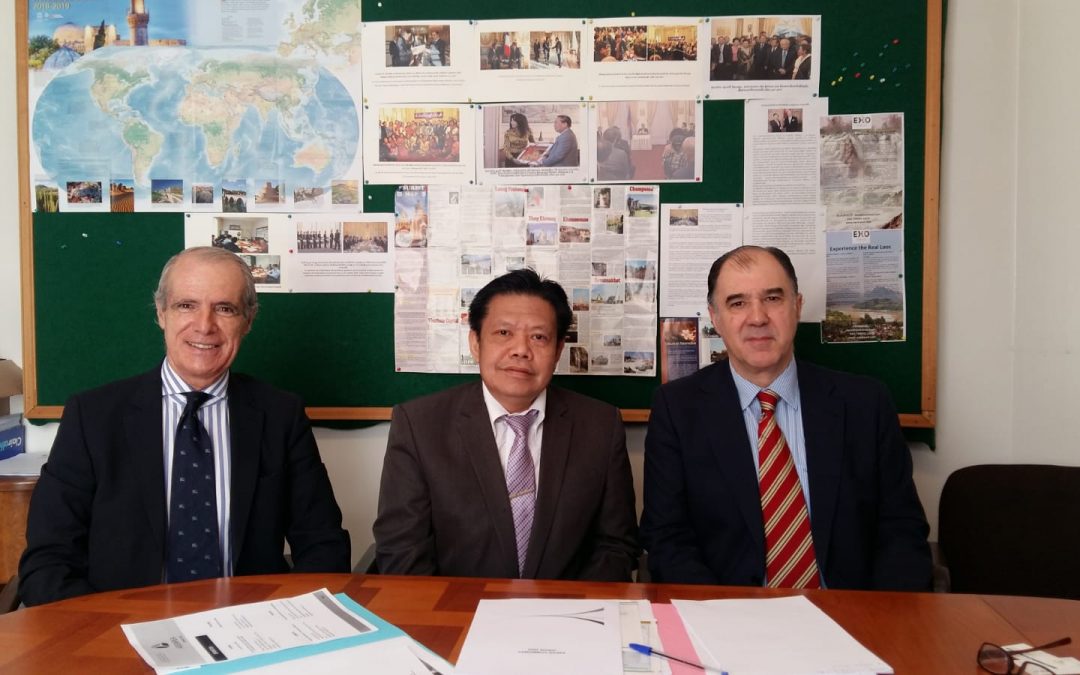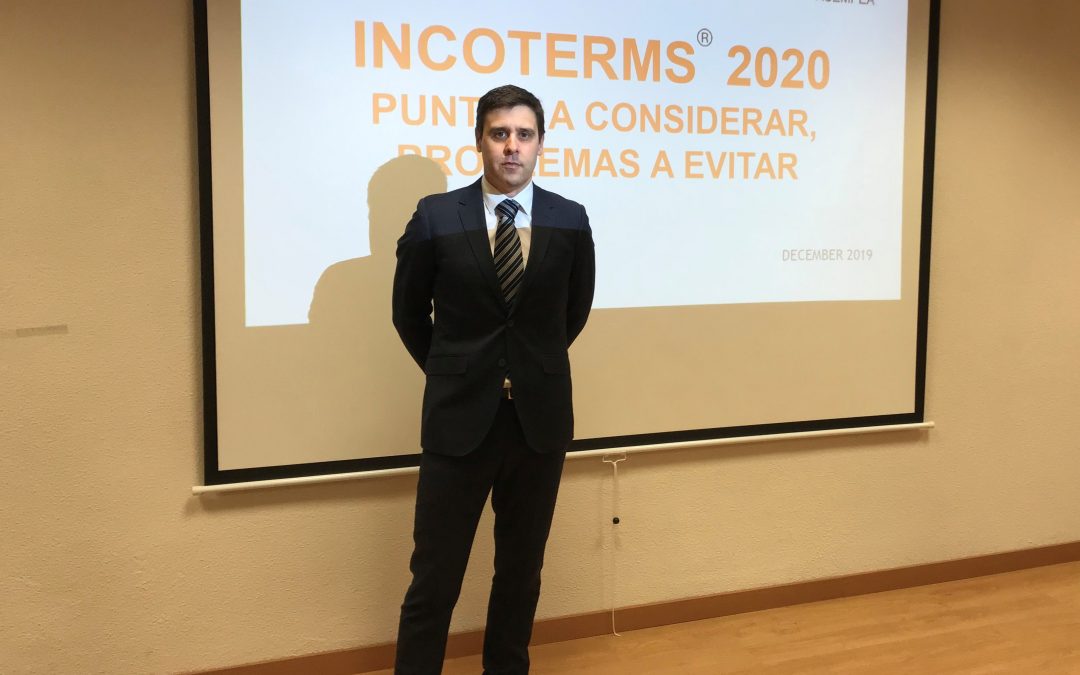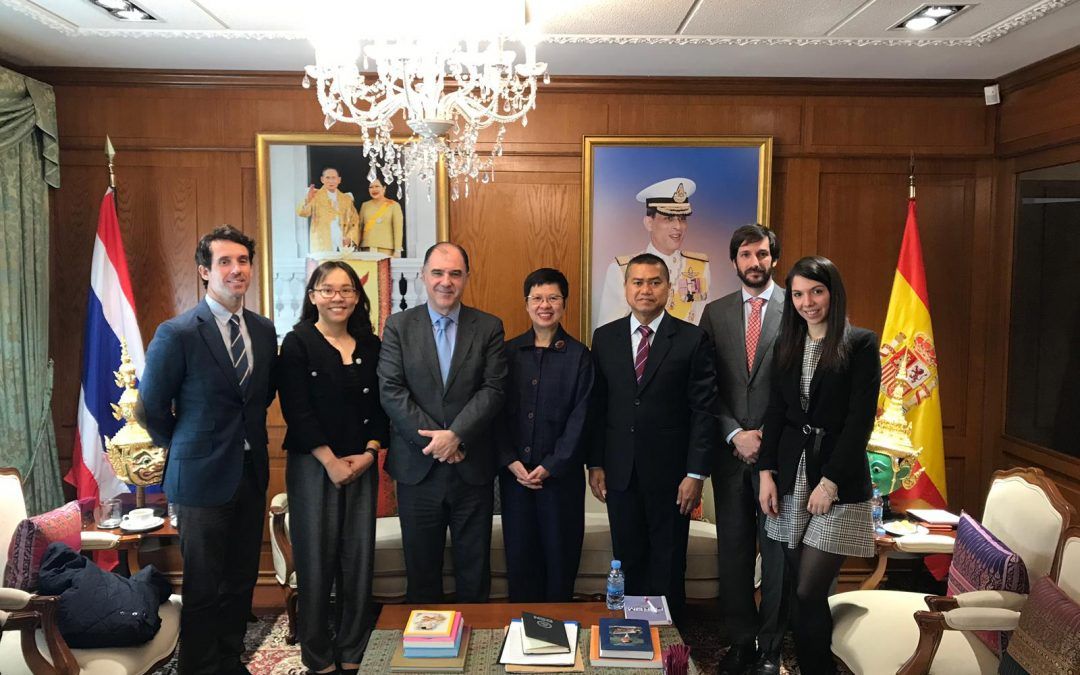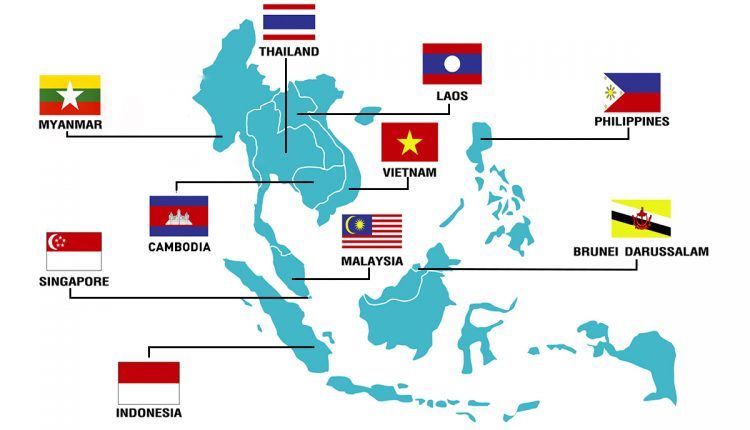
Feb 25, 2020 | ASEMPEA, LAOS, SPAIN
Our Association’s Chairman, Mr. Tomás González, and our Secretary General, Mr. Antonio Viñal, met this morning with the Commercial Counselor of the Embassy of Laos, Mr. Morakot Vongxay. In the course of this meeting they agreed to explore possibilities for collaboration between the Embassy and our Association.

Jan 7, 2020 | ASEMPEA, BRUNEI, CAMBODIA, INDONESIA, LAOS, MALAYSIA, MYANMAR, PHILIPPINES, SINGAPORE, SPAIN, THAILAND, VIETNAM
Today, January 7, 2020, in our Association’s headquarters, took place a Talk-Colloquium about “CULTURE AND PROTOCOL IN THE WAY OF DOING BUSINESS IN THE ASEAN”, with the participation of Mr. Carlos Gastón, representative of BBVA in South-East Asia for more than twenty years.
The Talk focused on the Asean countries’ specific features that all companies should take into account when doing business in these countries, as well as on the business opportunities the latter offer to Spanish companies throughout this year.

Dec 12, 2019 | ASEMPEA, BRUNEI, CAMBODIA, INDONESIA, LAOS, MALAYSIA, MYANMAR, PHILIPPINES, SINGAPORE, SPAIN, THAILAND, VIETNAM
Today, December 12, in our Association’s headquarters, we held a business meeting on “INCOTERMS 2020”, given by Mr. Cesar Jiménez, of Kerry Logistics.
The presentation focused on the different types of Incoterms, the main differences between the Incoterms 2010 and the new Incoterms 2020 and, finally, on how importers, exporters, logistic companies and custom companies will be affected by the latter.

Apr 1, 2019 | BRUNEI, CAMBODIA, INDONESIA, LAOS, MALAYSIA, MYANMAR, PHILIPPINES, SINGAPORE, THAILAND, VIETNAM
Last week, a Delegation from the Board of Directors of ASEMPEA held meetings with the Thai Business Manager and the Ambassador of Vietnam in Spain to present the Association and show its willingness to collaborate with all the ASEAN Embassies in order to help increase relations between Spain and these countries”
A meeting was held on 26 February with the Thai Business Attaché, Ms. Natenapa Kongsri, who was accompanied (a) by Mrs. Prapasri Chetsonkcul, Counsellor; and D.. Thamrong Tiammek, Agredado of Defense and Naval.
(a) by Mrs. Prapasri Chetsonkcul, Counsellor; and D.. Thamrong Tiammek, Agredado of Defense and Naval.
In the course of the meeting, it was agreed to hold meetings between the partners of ASEMPEA and Thai companies to promote business between the two countries, as well as the joint promotion of events carried out by both institutions.
And on 28 February, another meeting was held, this time with the Ambassador of Vietnam, in which the Trade Adviser, Mr. Nguyen Duc Thuong, was also present.
After a wide exchange of impressions, it was agreed to strengthen contacts between ASEMPEA partners and the Embassy, analyze business opportunities between the two countries and organize a calendar of visits and direct and reverse missions

Apr 1, 2019 | BRUNEI, CAMBODIA, INDONESIA, LAOS, MALAYSIA, PHILIPPINES, SINGAPORE, THAILAND, VIETNAM
The Development Center of the Organization for Economic Cooperation and Development recently published a study entitled “Economic Prospects for Southeast Asia, China and India 2019”, which analyses the challenges and risks to which members of Asean, China and India will face the period 2019-2023. In the case of Asean, it starts with the Philippines, Indonesia, Malaysia, Thailand and Vietnam, and it is precisely these countries that we are going to refer to first, leaving for successive deliveries Brunei and Singapore, on the one hand, and Cambodia, Laos, Myanmar, on the other.
Growth forecasts of ASEAN countries
In General, the average annual growth forecasts are around 5.2, with a maximum rate of Philippines (6.6), followed by Vietnam (6.5), Indonesia (5.3), Malaysia (4.6) and Thailand (3.7), depending on these forecasts, ultimately of circumstances Policies, such as elections to be held in Indonesia (2019), Thailand (2019) and the Philippines (2022); of legal circumstances, such as the liberalization of regulatory frameworks and the streamlining of administrative procedures; And the implementation of numerous ambitious infrastructure programmes, such as the Eastern Economic Corridor in Thailand, the Special Economic Zones in Vietnam, or the National Strategic Projects in Indonesia.
Investing in the digital economy
Alongside these challenges, these countries confront others, highlighted by Asean Secretary General, Dato Lim Jock Hoi, as the development of the digital economy, whose investments up to the year 2025 could add up to more than 200 billion dollars , or the creation, in this area, of Digital Free-Trade Zones, as is the case of Malaysia, in collaboration with Alibaba, in order to promote cross-border transactions and e-commerce, which will mark, in these and other countries, the future course of the Economy.
These challenges are not exempt from risks, characterized today, in large part, by increasing restrictions on international trade, which are beginning to affect exports, fortunately compensated by domestic consumption in some cases ( Indonesia, Malaysia, Thailand, Vietnam) or by remittances sent from emigrants in others (Philippines). However, in spite of this forward wind, the economies of these countries present a development potential that is significantly higher than in other areas, which makes them remain important sources of attraction for foreign investment.






